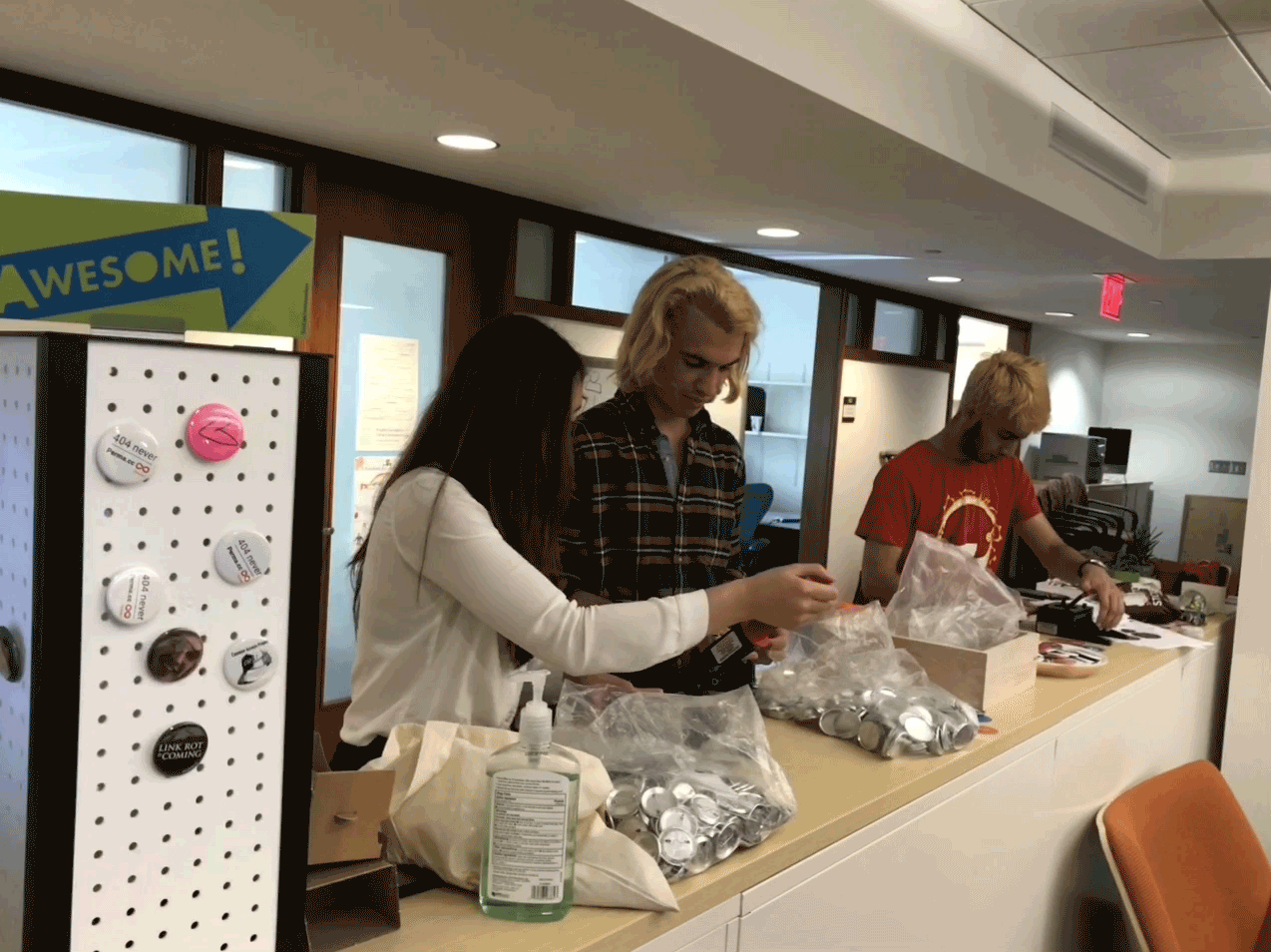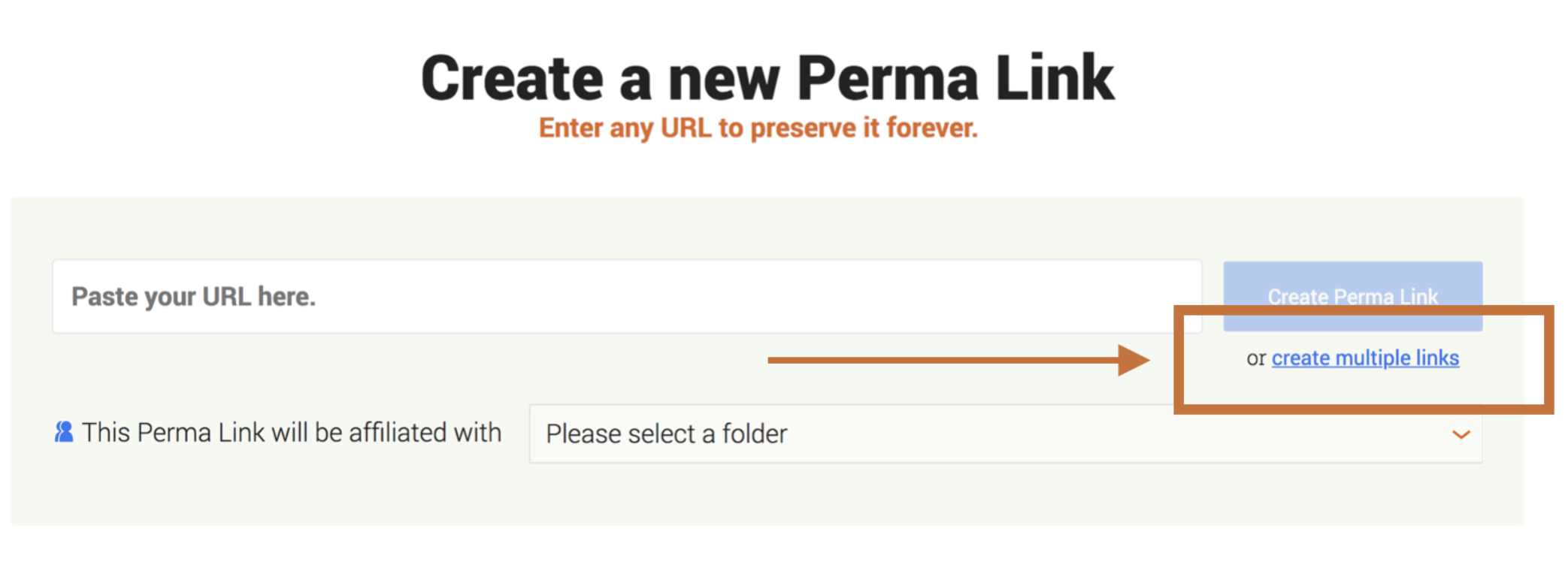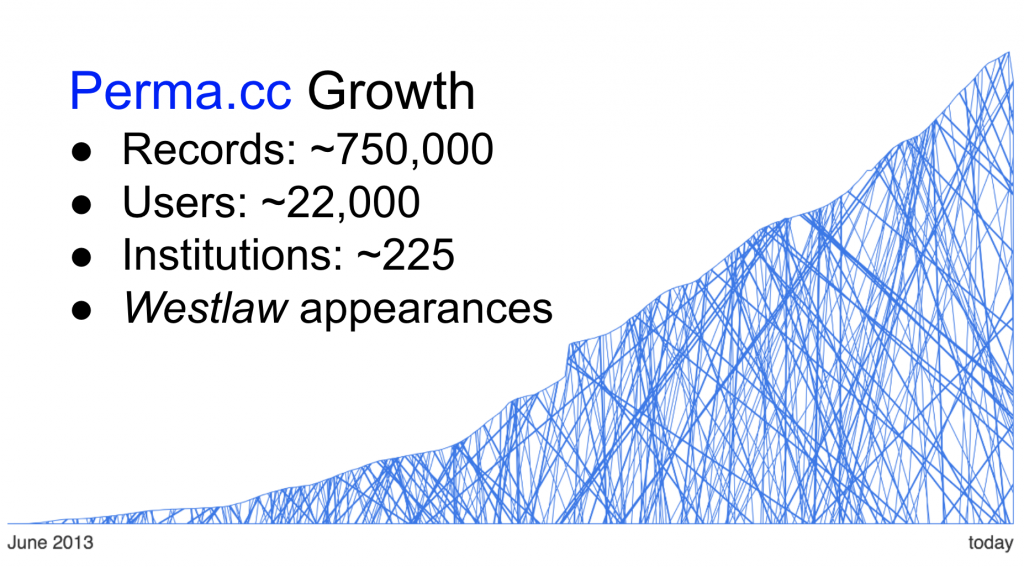Last weekend members of the LIL team traveled to Baltimore for the annual gathering of the American Association of Law Libraries (AALL). Armed with our new business cards (thanks Anastasia) and freshly pressed buttons (thanks LILterns) Brett, Adam and I were ready to attend sessions, catch up with colleagues and hit the exhibit hall.
We kicked the weekend off with a keynote speech from Baltimore’s own John Waters, author and director of boundary-pushing cult films such as “Hairspray” and “Pink Flamingos”. Beyond his connection to the conference’s host city, his appearance seemed at first to be an odd fit. However, as he pointed out, “librarians are brave, smart and sometimes pissed off…and they stand up for people who get overlooked” – all qualities he tries to get at in his movies. His thoughts on access to books for prisoners, the risks of censorship, and equality got everyone ready for the next couple of days.
Our friends at LIPA once again generously shared their exhibit hall table with the LIL team, for which we’re exceedingly grateful. It was great to work alongside Margie Maes, champion of LIL and Executive Director of LIPA who will be retiring this month. Congratulations, Margie! We will miss her, but were also thrilled to meet her successor, Michelle as well. Here’s to future collaborations!
A big goal of ours during AALL (in addition to spreading the word about new-and-improved H20, progress on the Caselaw Access Project, and new batch link creation for Perma) was to seek feedback and thoughts from colleagues about link and citation rot in the broader context. We’ve been rooted in our home of an academic law library – but we are seeking input and thoughts about linkrot in other industries and contexts.
We want to know: Who thinks linkrot is a problem for the flow of information and citation? What is their job? What kind of content is especially susceptible to the dreaded 404 error? At what points in the creation of the content are citations and links added? Whose responsibility is that? Are you seeing solutions to this problem? Email us! We’d love to talk.
Stay tuned for some of the answers we got during conversations at AALL!






